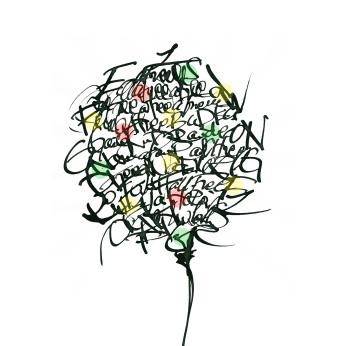Some of them can be seen, maybe
Even touched; the subtle pattern
Of their stroked bodies, sculpted.
Others cannot be seen; definitely
Not touched, but they can be heard;
Their music a song older than time.
Either way, it’s not so much whether
They can be touched or not, as much as:
Whether or not we allow them to touch us.
Words…
Cold words, heated words,
Forewords, backwards…
Wordsmiths twist and shout their
Materials into countless combinations,
Endless paragraphs and long-term
Sentences
The written word, the spoken word,
The way word
But what is its soul; in a word,
What is its purpose?
Let us review; let us open the fifth book,
The book of explanation, and let us learn…
These are the words…
We have journeyed long, four books and
Infinite possibilities worth, from the creation
Of the universe to the realization of its purpose
And the threshold of fulfilling it – at the border of
The Promised Land.
Here we are, today, beginning a new book,
A new journey – a new definition.
But what is this book, titled Words?
What does it review; what does it explain?
How can the Torah, a piece of the Divine,
A reflection of peace, unity and truth, ever
Exist in a physical world of fragmentation,
False pretenses, and great divides?
How can two people, opposites, relate?
It is what we call communication, expression:
The ability to take words, simple, black curves
And lines, and form them into ideas and emotions,
Bridges that allow us to go from one reality to
Another.
But there are two ways to communicate:
1: Relating words in a 3rd person narrative,
As a messenger, relaying a message without
Actually becoming it: relaying profundity
Without necessarily becoming profound
2: Relating, and relating to, words in a 1st person
Experience, taking the message and making it a
Part of you so that you can make it a part of others.
These are the words
That Moshe spoke
To all Israel
The 5th book in the 1st person:
Before the fifth book, the Torah wasn’t reviewed,
Taught, it wasn’t articulated by man, it
Just was: divine, holy, pure. The first four
Books related and relate to a people who
Aren’t really challenged to be themselves
For they haven’t really experienced others:
They live in a desert where all’s given to them…
And when all is given without work or effort,
One mustn’t work too hard to make the Torah
Theirs, a part of their reality – after all,
It already is.
But now it’s time to enter a new reality, where
Man has to earn his dough and work for his bread…
And for this the Torah must be articulated in the
1st person, Moshe: the Torah must be made ours,
The words must come alive, alive not just in our minds
And hearts but also in our smallest and most subtle
Actions – the words must permeate our being like
The air we breathe and the flame we burn.
Looking in Words, not just viewing but also reviewing them,
Learning them, teaching them, becoming them –
May the Torah not be (only) a third-person narration
But (also) a first-person experience.
Looking In Words –
The ability to read, speak, live divine.
Mendel Jacobson is a writer, poet and journalist living in Brooklyn. His weekly poetry can be seen at jakeyology.blogspot.com
The words of this author reflect his/her own opinions and do not necessarily represent the official position of the Orthodox Union.

